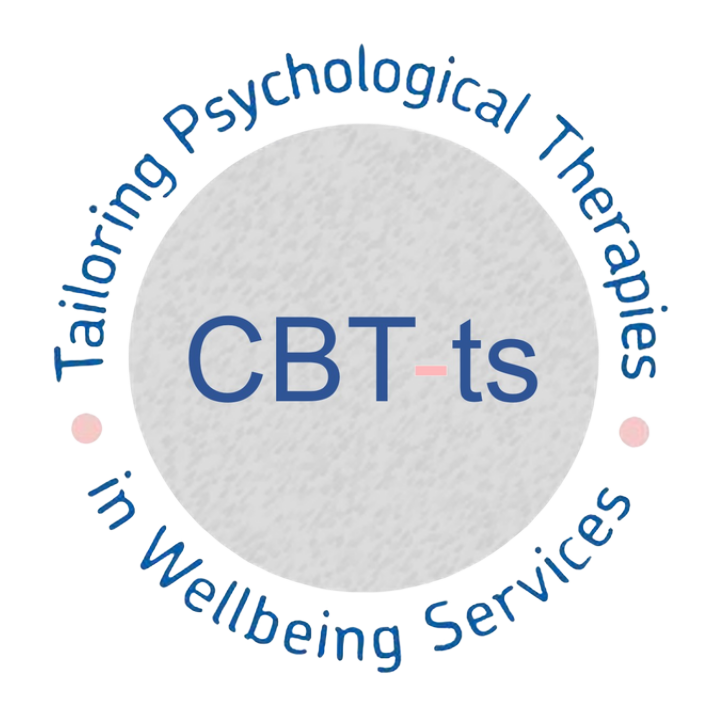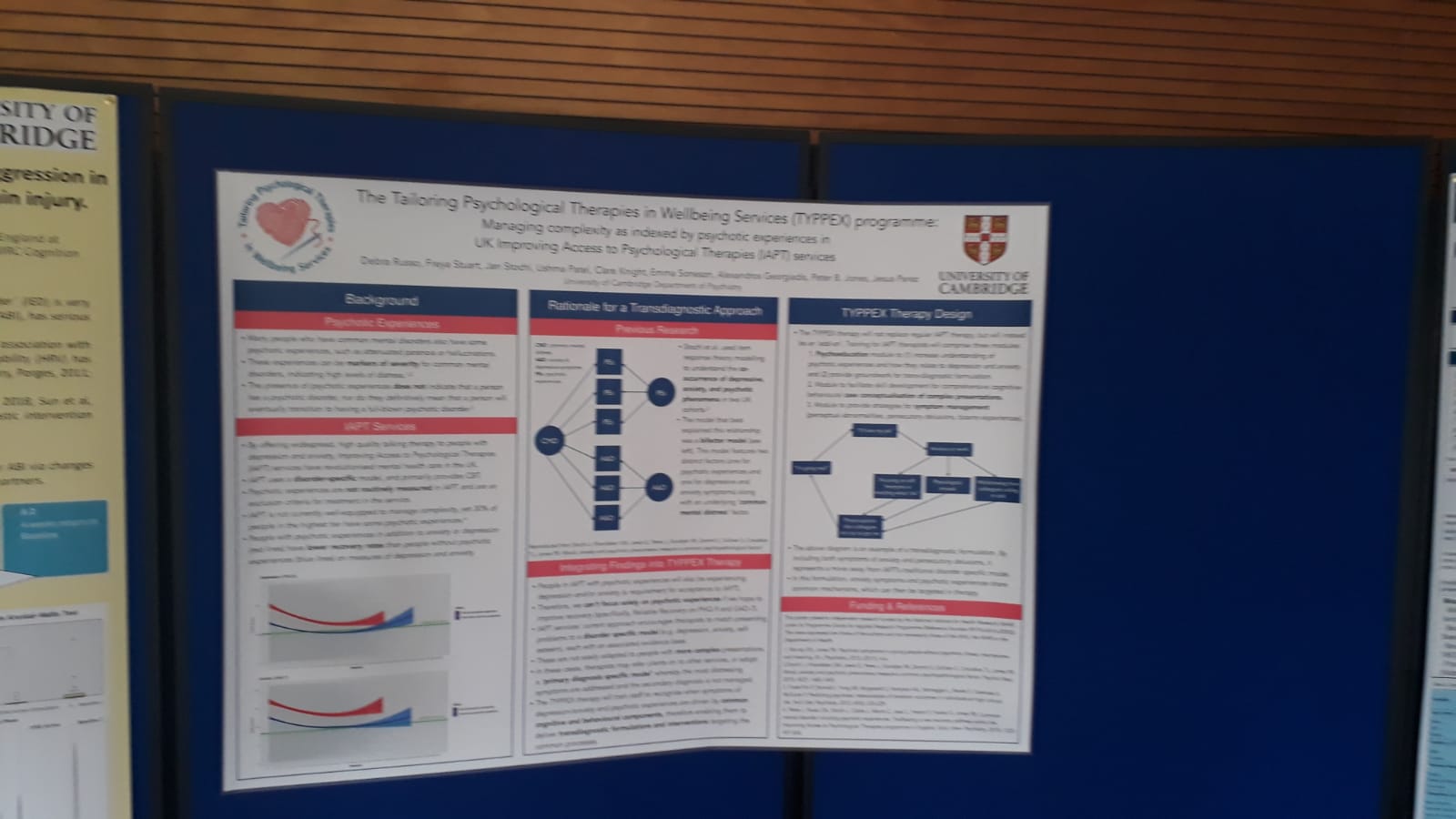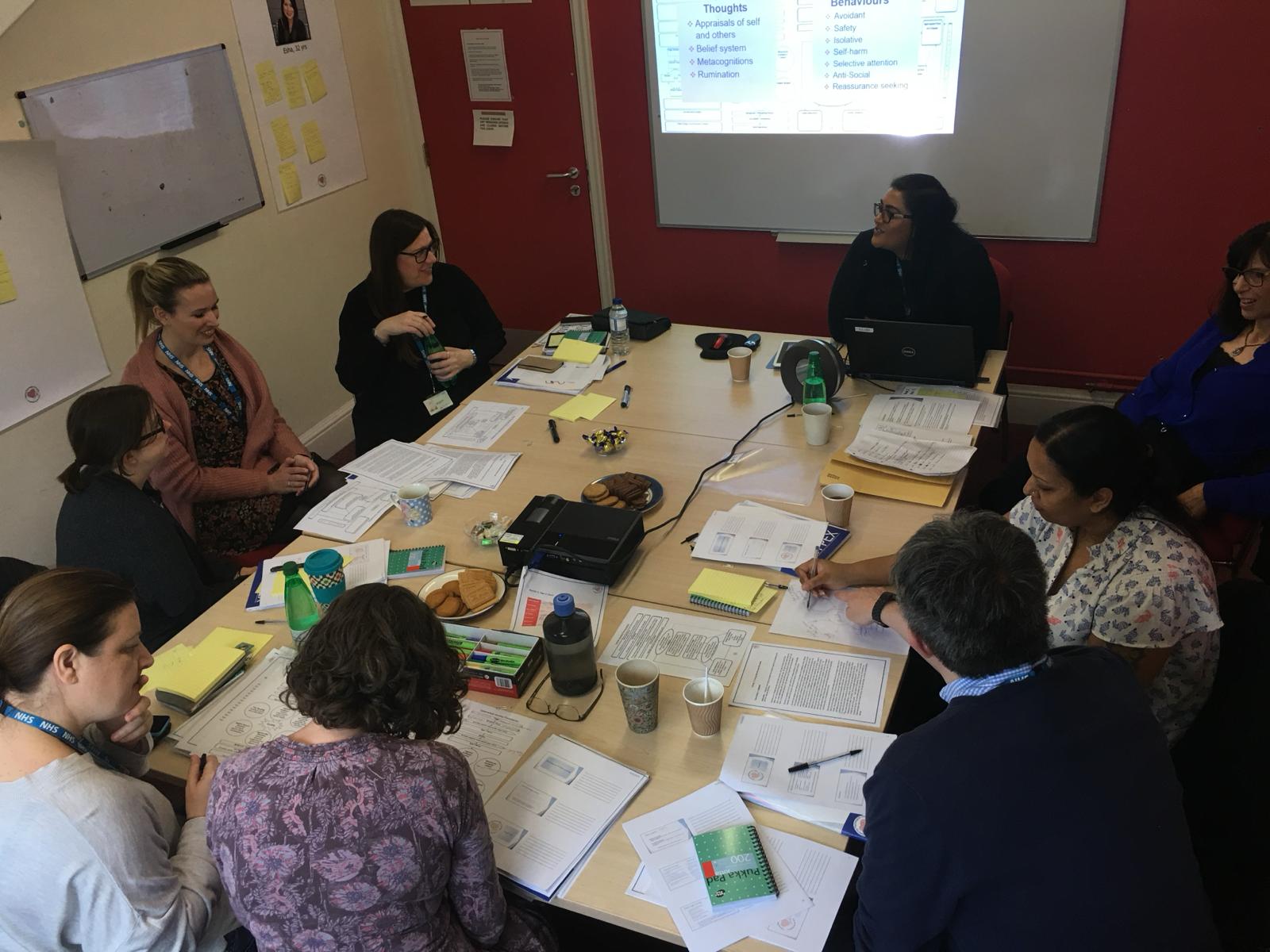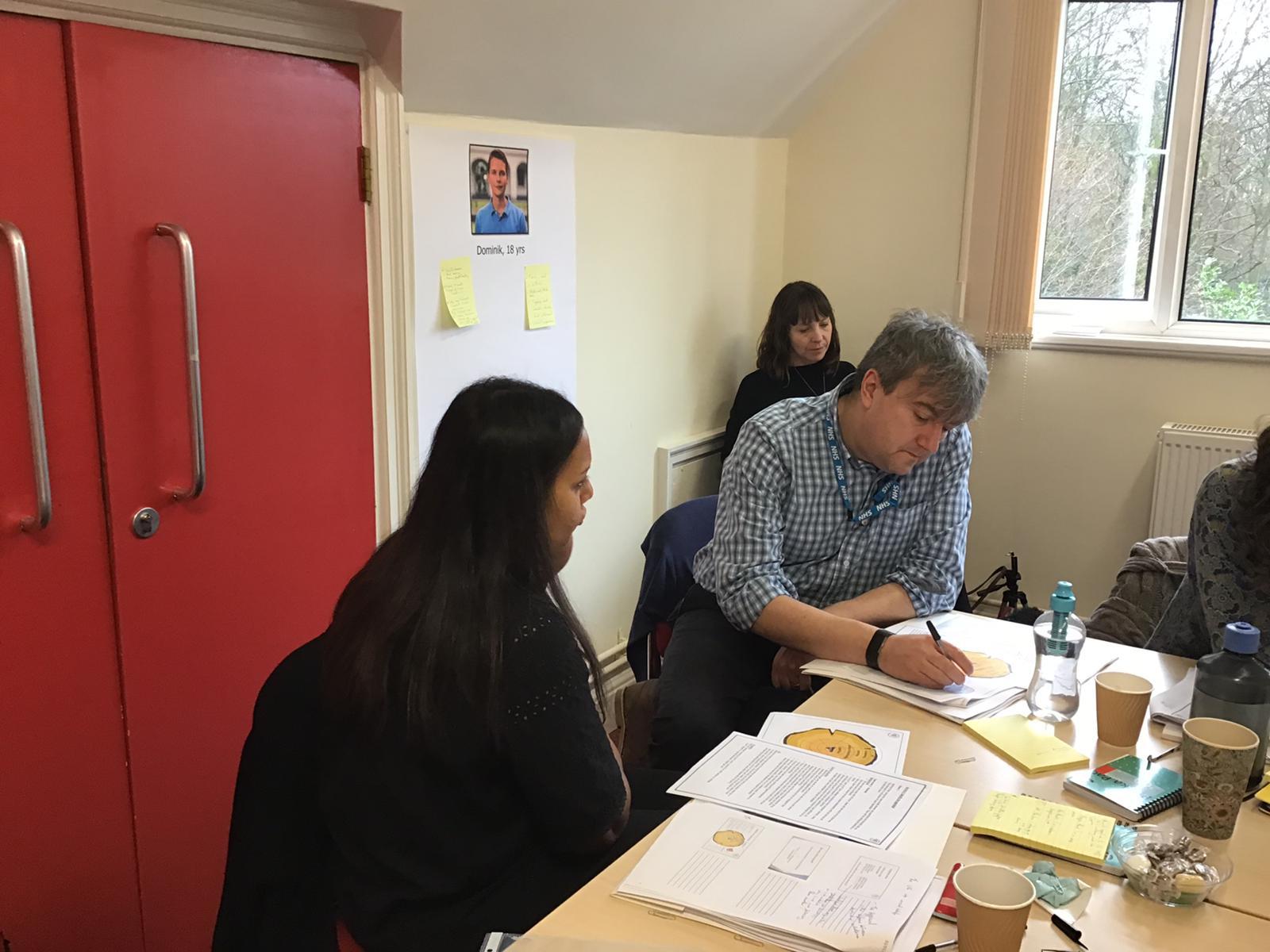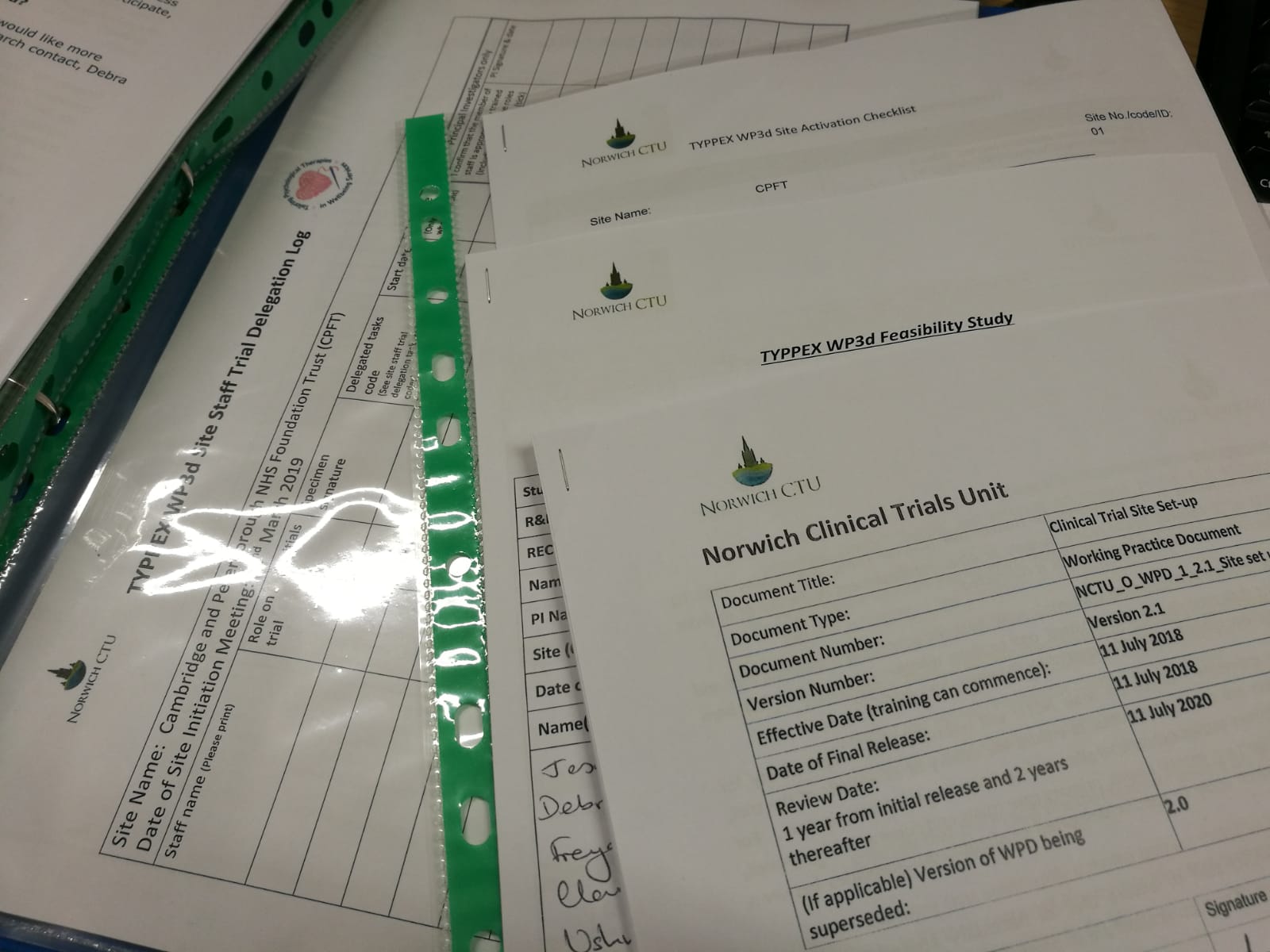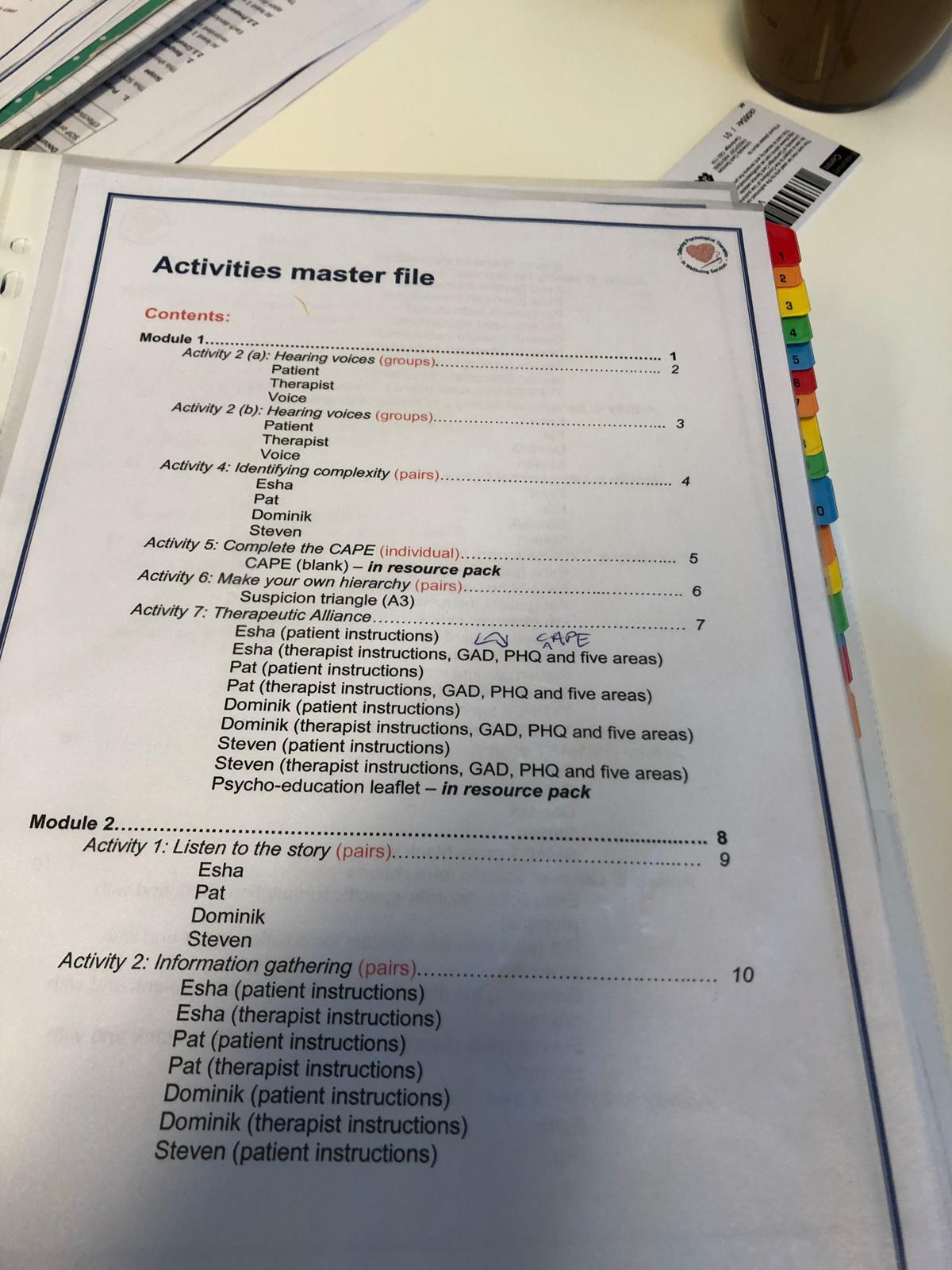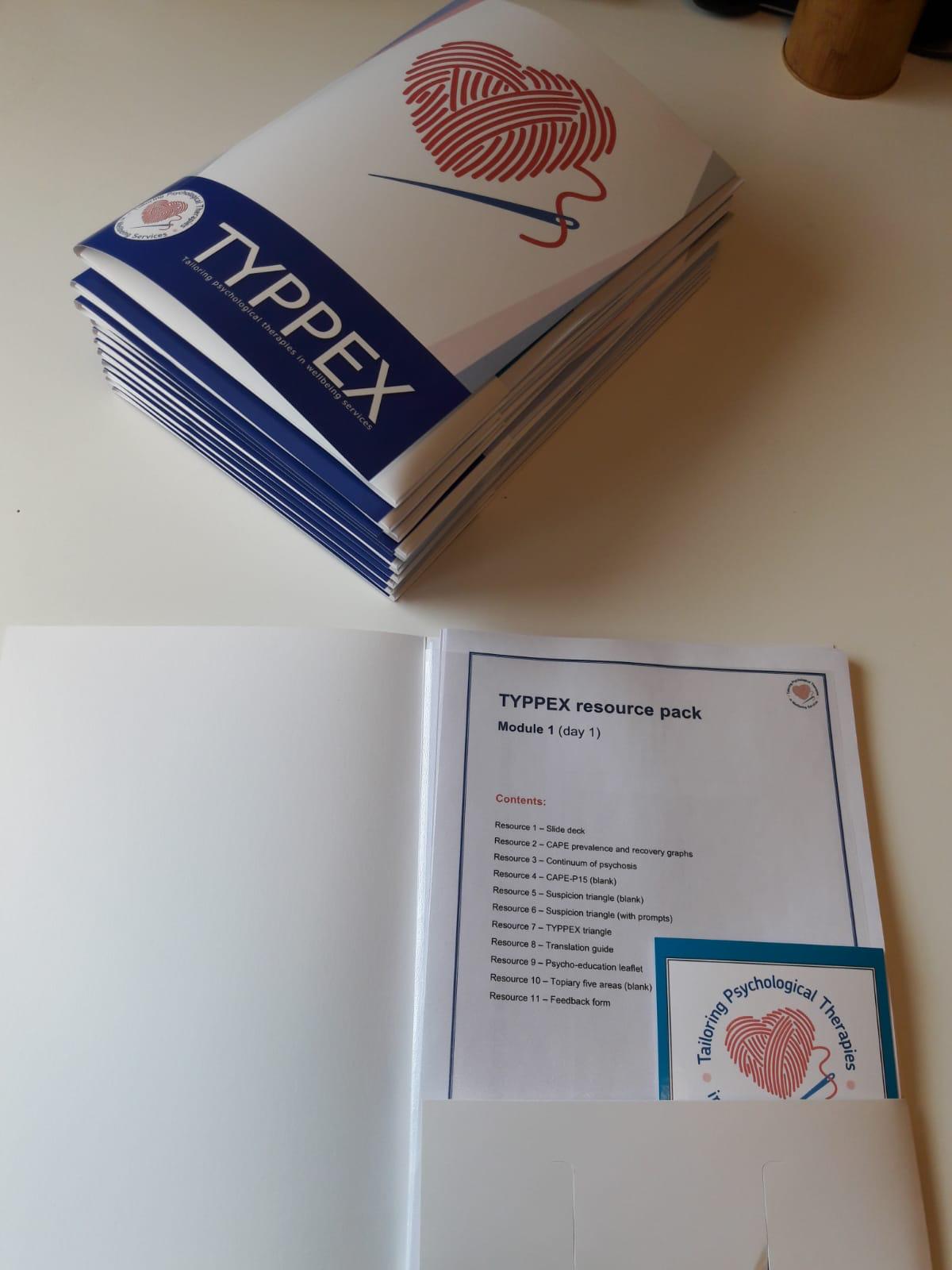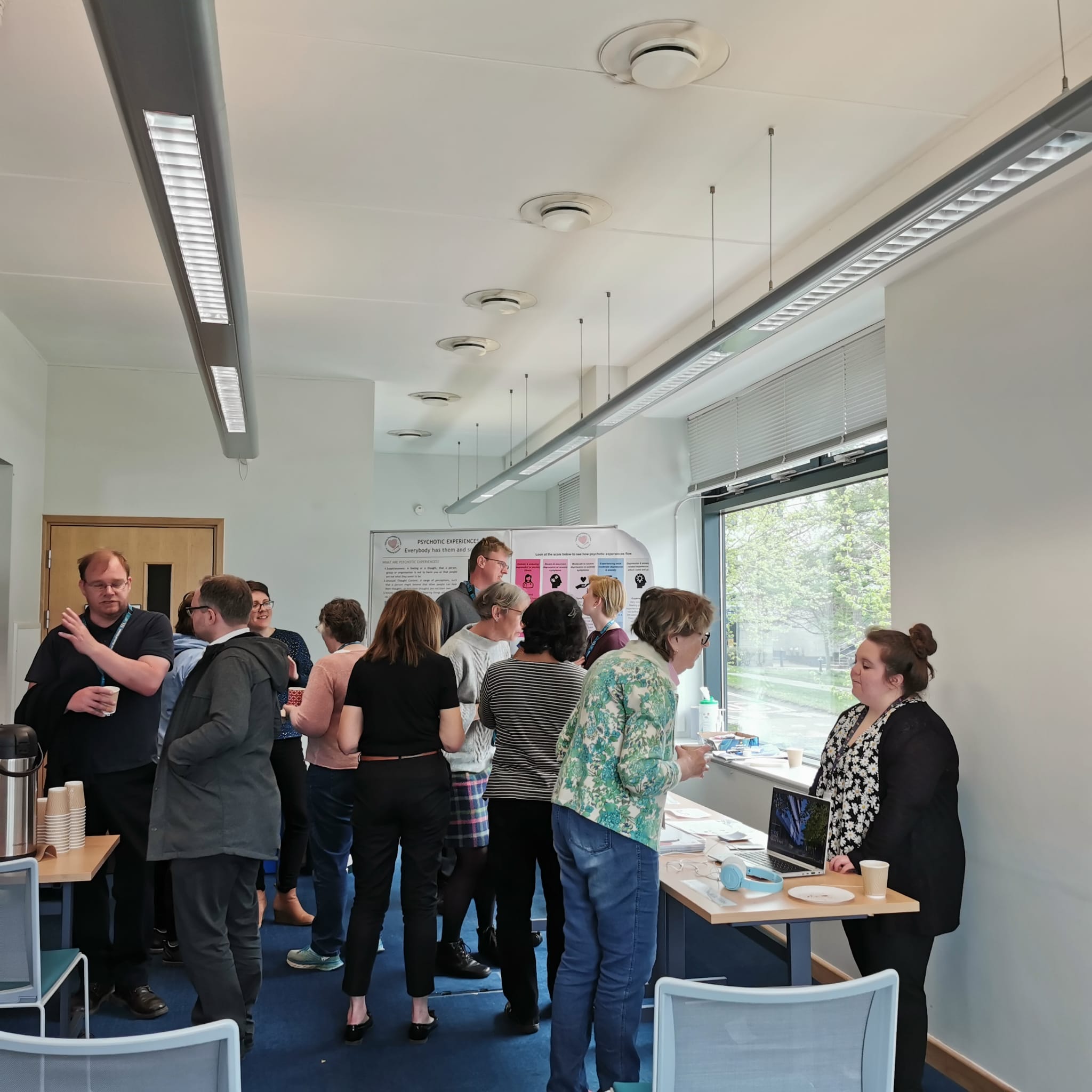Our Story
Over the Years
2007/2008
Understanding causes of and developing effective interventions for schizophrenia and other psychoses
- NIHR RP PG 0606 1335
- This study developed our understanding of the social epidemiology of psychosis, which will help people at high risk of developing first-episode psychosis (FEP) receive appropriate services focused on their current mental state.
2016
Outcomes
-
- Overall incidence of FEP: 45.1 per 100,000 person-years [95% confidence interval (CI) 40.8 to 49.9 per 100,000 person-years]
- 2 to 3 times higher than the incidence predicated by the UK Department of Health
- We found considerable psychosis morbidity in diverse, rural communities
- We developed and validated a population-level prediction tool, PsyMaptic, capable of accurately estimating the expected incidence of psychosis
- Only 5% of our high risk (HR) sample transitioned to a structured clinical diagnosis of psychosis over 2 years
- HR individuals had a higher prevalence of moderate or severe depression, anxiety and suicidality than healthy volunteers (HVs).
- In fact, psychometric analyses in other population samples indicate that psychotic experiences (PE) measure the severe end of a common mental distress factor, consistent with these results
- HR individuals also experienced significantly more traumatic events than HVs, but equivalent distress
- Almost half of HR individuals had at least one Schneiderian first-rank symptom traditionally considered indicative of schizophrenia and 21.6% had more than one
- HR individuals had very poor global functioning and low quality of life

2018
Views on identification and treatment of common mental disorder (CMD) including PE in NHS Talking Therapies (formely, IAPT)
-
- Qualitative study of service user, NHS Talking Therapies therapists and managers views on the identification and treatment of PE in NHS Talking Therapies services.
- With the purpose to inform the development of TYPPEX training package, interviews sought to understand the priorities, preferences and views of staff and patients prior to developing the TYPPEX model.
- Outcome: Not finished, TBC.
2018
Systematic review of psychological therapies to reduce PE and associated distress in current practice
- With the purpose of synthesising the evidence on the effectiveness and cost-effectiveness of psychological therapies to reduce psychotic experiences and distress.
- Currently, the predominant therapeutic approach used in NHS Talking Therapies services is cognitive-behavioural therapy (CBT), but we incorporated the recommendation from our PPI group to broaden the range of therapeutic models reviewed beyond CBT alone.
- We found that CBT may reduce distress for people with PE but our meta-analytic findings were primarily null, and scarcity of studies, small sample sizes, and variable study quality limit our ability to make definitive conclusions.
- Whilst several other therapy frameworks showed preliminary but promising evidence of positive outcomes, the general lack of consistent evidence for clinical and functional improvement highlights a need for further research into psychological treatments for this population.
- Outcome: The TYPPEX programme addresses this evidence gap by providing high quality evidence as to the effectiveness and cost-effectiveness of upskilling therapists to better treat people with PE in the NHS Talking Therapies setting.
2018
Conference on Transdiagnostic Approaches to Mental Health Challenges
- Our lovely Research Associate, Debra Russo, present the poster entitled: “Managing complexity as indexed by psychotic experiences in UK Improving Access to Psychological Therapies (IAPT) services“.
Brainworks, Cambridge
- The lovely Freya Stuart (Study team/PPI), Annie Walsh (LEAP), Anjie Chhapia (LEAP)and present the poster entitled: “Embedding lived experience to enhance the development, pilot and trial of a psychological therapy“.
2018
Developing the TYPPEX conceptual model
- Drawing on information from multiple sources the TYPPEX conceptual model was developed. We assembled a Therapy Development Group (TDG – click here for more information) including clinical co-applicants with expertise in treating PE, working within a CBT framework and delivering training to therapists. We also included service managers to advise on the operational delivery of TYPPEX, and representation from our TYPPEX PPI group to comment on the acceptability of our selected approach from a service user perspective.
- Modules were developed and regularly reviewed with our PPI collaborators, incorporating their opinions where possible, and with Talking Therapies service managers to ensure the model was deliverable within the boundaries of the service.
- The second component of the TYPPEX model provides clinical supervision to newly trained therapists.

2019
Developing the TYPPEX model into a deliverable training course for CBT therapists in NHS Talking Therapies services
- The TYPPEX model was specifically designed for qualified CBT therapists in Talking therapies services.
- The training focuses on enhancing existing skills to address PE co-occurring with depression and/or anxiety, whilst maintaining fidelity to the fundamentals of CBT. In consultation with senior managers, we designed a 3-day, three-module course delivering face-to-face including lecture-based learning, role play sessions and access to TYPPEX therapy resources.
- The core training package was tested ahead of the TYPPEX feasibility study (described as the ‘sense check’) with a team of Talking therapies’ therapists independent from the feasibility study and c-RCT.
- The TYPPEX team observed the training in situ and collected feedback of participating therapists. In parallel, our co-applicant Paul French who leads the Early Detection and Intervention Team in Manchester, a centre of excellence for the psychological treatment of PE in specialist mental health care settings, observed and appraised the training.
- Outcome: This formative feedback informed modifications to optimise the TYPPEX curriculum and delivery, which was discussed with the TDG and TYPPEX PPI group ahead of the TYPPEX feasibility study.
2018
Prevalence of PE in NHS Talking Therapies
- The prevalence of PE in a cross-sectional survey of NHS Talking Therapies services was established using the Community Assessment of Psychic Experiences (CAPE-P15) questionnaire is 15-item self-report measure of PEs which gathers frequency and distress of symptoms. Higher scores indicating a higher frequency of PEs and an increased level of distress associated with these experiences.
- In September 2018, we began CAPE-P15 collection at a fourth site, Coventry and Warwickshire NHS Partnership Trust (CWPT) to diversify our sample.
- We closed recruitment to this service evaluation having collected in excess of 2200 CAPE-P15 forms, against a target of 1500.
- We report the prevalence of PE at the CAPE-P15 threshold score of 1.47 that we have previously shown to identify subjects as at-risk of developing a psychotic disorder using the gold-standard CAARMs interview (click here for more information), and at a lower threshold of 1.30 chosen as within one standard error of measurement (click here for more information).
- Outcome: This allows us to explore threshold effects within the association between PE and poor recovery and, potentially, in the effect and applicability of TYPPEX therapy.
2019
Impact of PE on recovery rates in NHS Talking Therapies services
- The impact that the presence of PE had on recovery from depression and/or anxiety in the NHS Talking Therapies population was assessed through patient-reported measures of depression (PHQ-9) and anxiety (GAD-7), routinely collected from all service users receiving treatment. This occurs before, during and after therapy and these scores define and assess recovery standards in NHS Talking Therapies services.
- All NHS Talking Therapies services routinely monitor and report recovery data which is compared with the national standard that at least 50% of NHS Talking Therapies service users should achieve recovery.
- Our primary interest for this trial is recovery as defined by NHS Talking Therapies, as it is this metric that drives uptake and implementation, and the impact of the programme.
- Outcome: We demonstrated that PE at both CAPEP15 thresholds are associated with lower NHS Talking Therapies-defined recovery.
2019
Preparation of data collection on feasibility study
- The Norwich Clinical Trials Unit (NCTU) is a leading academic clinical trials unit that supports health and social care research from grant development through to publication.
- In collaboration with NCTU and the development companies, we added an electronic version of the CAPE-P15 to the patient management systems, capable of automatic scoring upon entry, instantly alerting therapists to patients eligible for TYPPEX. This way, diminishuing the timely scoring and interpretation of the CAPE-P15 at the start point of therapy.
- NCTU worked with the research team to digitise processes such as collection of consent and completed questionnaires in order to diminish the trial risk, meaning participants would receive these documents embedded on tablet devices and data would be entered using Microsoft.NET technology.
- The research team and Norwich CTU submitted the feasibility study protocol to the South Central Berkshire Research Ethics Committee in January 2019 and approved in March 2019.
- Outcome:

2019
TYPPEX feasibility study
- This study to assess the practicality of proposed methodology for the TYPPEX c-RCT, recruitment and retention of the NHS Talking Therapies therapists to receive TYPPEX training, the acceptability of the TYPPEX concept, techniques, course materials and training activities.
- Between April and December 2019, a total of 36 therapists (from across 3 trusts) went through the 3 days of “TYPPEX” training.
- When back to practice, CAPE P-15 scores were collected as well as anonymised routine clinical data on recovery rates for CAPE+ patients.
- For successful recruitment to this stage, all new patients beginning a new course of CBT treatment received a CAPEP15 during their first treatment session as part of a battery of routinely collected clinical measures
- Total recruitment closed at 129 for participants with a CAPE P-15 threshold score of 1.47+ and 153 for participants with a CAPE P15 threshold score of 1.30+. Recruitment to health economics data collect, cost-effectiveness of trial, closed at 69 participants.
- From September 2019 to February 2020, there was a process evaluation. A total of 30 service users, 15 trained therapists and 6 managers were interviewed.
- Outcome: Therapists initially struggled to normalise and formulate PEs, but developed in confidence after supervision. Patients that received TYPPEX resources or had TYPPEX strategies integrated into their main frame CBT were able to perceive their PEs more positively, and understand how they link to their primary presenting problem.
2020
COVID-19
- At the point of national lockdown, NHS Talking Therapies services adapted to online service delivery almost overnight. As so, the TYPPEX protocol was also adapted:
- Consent and data collection using remote-working technologies;
- Training and supervision adapted for remote delivery;
- Start delayed by 6 months from June to December 2020.

2020 - Present
TYPPEX trial in NHS Talking Therapies
Intervention
- December 2020: site 1 opening (CPFT)
- January/February 2021: site 2/3 opening (NSFT and SPFT)
- The trial offically opened on 11th March 2021 in Control phase.
- A total of 73 therapists were recruited prior to randomisation, meeting our minimum target of seven therapists per cluster.
- Withdrawal of therapists during the trial was an anticipated risk but to mitigate this, recruitment of therapists was re-opened prior to each CBT-ts training course to increase cluster sizes going into training.
- June 2023: site 4 opening (HHFT).
- A total of 56 therapists have been recruited post-randomisation, and therapist recruitment was closed in June.
- Six cohorts of therapists (10 clusters) have now received CBT-ts training, with courses running in September 2021, May 2022, and January, June and September 2023.
- Therapists who have received CBT-ts training received specialist clinical supervision from the team until the end of April 2024 and ad-hoc supervision will continue until the end of the trial.
Cost effectiveness
- Our overall recruitment figures exceeded target making a total of 335 participants in the UK:
- 139 in Cambridgeshire and Peterborough;
- 140 in Norfolk and Suffolk;
- 54 in Sussex;
- 2 in Homerton.
- Patient recruitment ended at the end of April 2024 and the follow-ups are due to end at the end of October 2024.
- Then, all the data collected will be cleaned and prepared to be passed on to our collaborating Health Economics team at King’s College London for final analysis.
- Outcomes are due at the end of January 2025.
Dissemination events 2023
Norwich Science Festival
- The TYPPEX team made their debut at Norwich Science Festival in February 2022 with a stall exploring why we sometimes see things that aren’t there. We used optical illusions (with the help of sweets!) to explain to children how our brains use what we know to fill in the gaps and help us perceive the world around us, and how sometimes our brain can be tricked into believing something different than what is objectively true, or perceive what is true in a different way.
MED-I-CAKE @ Norwich Medical School
- This gave us the opportunity to talk about the programme in a more academic setting, leading to more focused conversations about the intervention, the practical side of designing and running this sort of trial, the aims of the programme and our experience with disseminating our work, as well as psychotic experiences and the clinical elements of the programme.
2020 - Present
TYPPEX trial in NHS Talking Therapies
Process Evaluation
There is often a lack of clarity on how an intervention leads to, or fails to lead to, the expected outcomes. To illustrate, consider the start of a study as similar to following a cake recipe. We begin with a protocol, which acts as a recipe for how the trial will be conducted, and we have an expected outcome. However, as many of us know from cooking, the final product can sometimes look very different from what was anticipated, even if the same recipe was used. This variability can also occur in scientific trials, such as TYPPEX, where the outcome may not align with expectations, and the reasons for this discrepancy are unclear.
This is where a process evaluation becomes important. A process evaluation helps to illuminate what is actually happening in practice. It allows us to answer questions such as what was implemented and how, how the intervention brought about change, and how the context influenced the outcomes.
For TYPPEX, a team led by THIS Institute conducted a process evaluation. This involved interviewing people involved in TYPPEX, including therapists, service users who received CBT-ts, line managers working in Talking Therapies, and study team members, to gather their experiences in the trial. The process evaluation team then analysed the interviews, looking for common themes in what people said to provide a more comprehensive overview of how TYPPEX worked in practice.
Process evaluation and PPI
Throughout TYPPEX, the LEAP and the process evaluation team collaborated closely. The LEAP provided feedback on study findings and advised on wording. For example, they recommended using the term “service users assessed as CAPE positive” instead of “CAPE positive service users” in any outputs.
The LEAP also assisted in interpreting interview transcripts. In one session, they participated in a workshop to learn how to apply research methods for organising and analysing interviews. Following this workshop, the LEAP analysed a subset of interview transcripts from service users previously interviewed by the process evaluation team. This collaboration offered researchers new interpretations of the interviews, as the LEAP provided insights from their lived experiences that the researchers could not.
Dissemination events 2024
Cambridge Festival – CAST day
- On Saturday 16th March, the TYPPEX team attended the Cambridge Festival CAST day at Cambridge Academy for Science and Technology with our trailblazing stall, “Psychotic experiences: everyone has them and so do you!”.
2025
Outcomes, Dissemination, policy change and translation into practice
- The outcomes of our study will be available by the end of January 2025. In the meantime, the TYPPEX team will focus on linking and analyzing the data, preparing the final report and publications, and developing the dissemination and implementation plan. We will focus on completing the cost-effectiveness analysis, with follow-ups concluding at the end of October 2024, followed by data analysis. Stay tuned for updates as we move forward with this exciting phase of the project!


